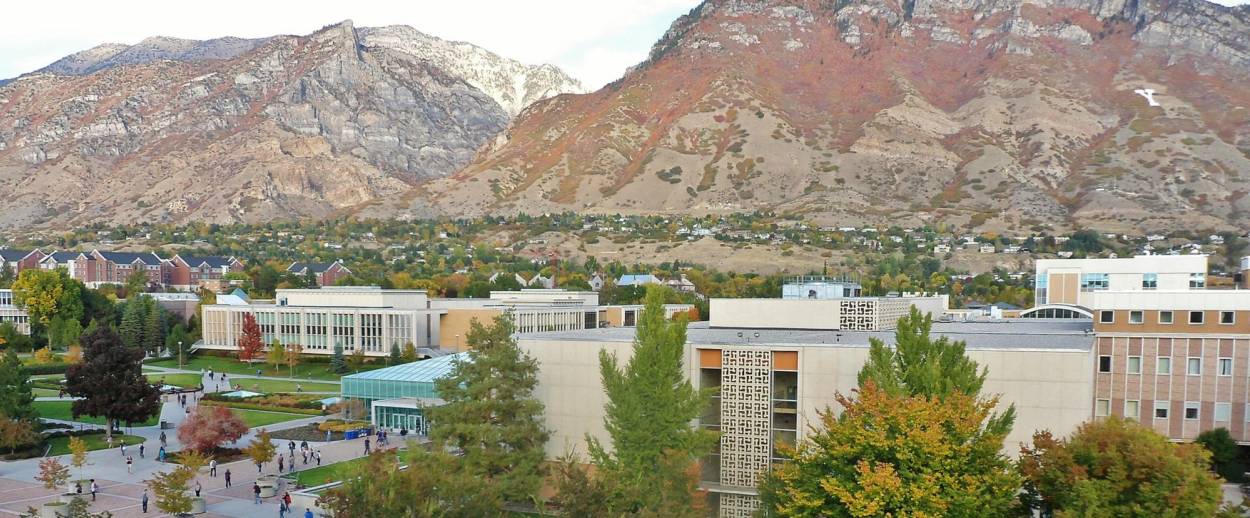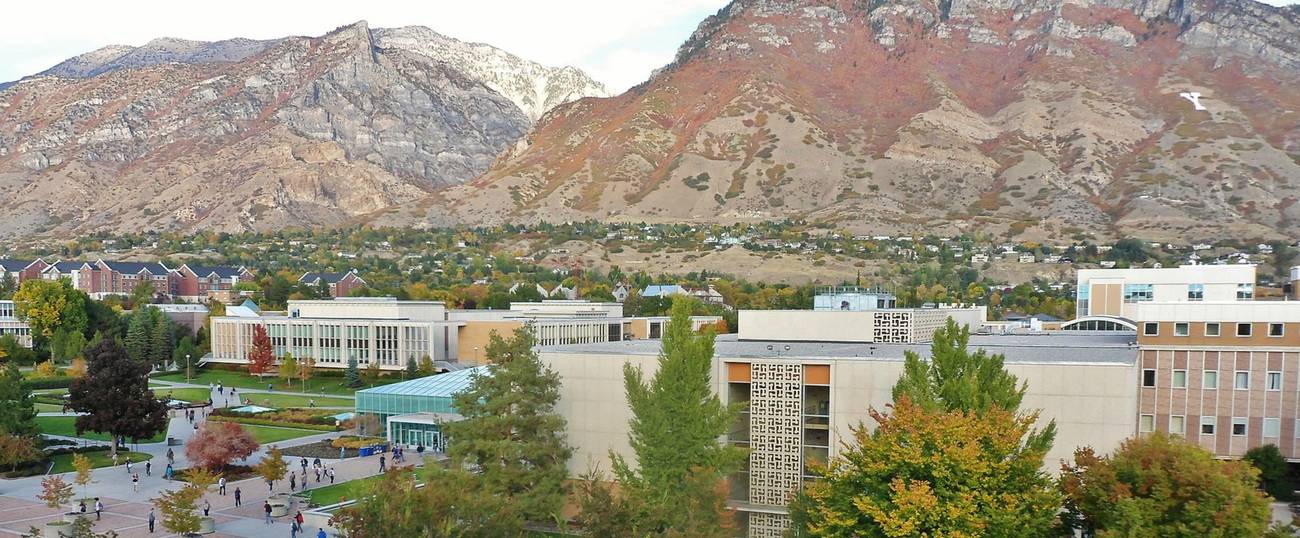Why I Refuse to Boycott BYU as a Guest Speaker
Citing opposition to a strict school policy, a sociologist scheduled to give a talk at the Mormon-sponsored university backed out. I wondered if I should do the same.




To my knowledge, I have never participated in a boycott: not against South Africa (for I was too young), not against SodaStream (politics aside, I don’t enjoy seltzer), not against Nestlé or California grapes. I suppose I have unintentionally boycotted Mel Gibson movies, but it’s hard to know what I’d do if he ever made another good movie. Yet here I am, inadvertently being called, as a Jew, to boycott a Mormon university.
The call is only implicit; nobody has asked me to stay away from Mormon-sponsored Brigham Young University in Provo, Utah. But when I read that the school, where I am scheduled to give a paid speech next month, was being boycotted by one scholar because it expels Mormon students who leave the church, I had to wonder: Ought I do the same?
The story is that Mark Juergensmeyer, a sociologist from the University of California Santa Barbara, was scheduled to speak at BYU’s International Law and Religion Symposium on Tuesday. But after being informed by the alumni group FreeBYU of the policy they oppose—according to which non-Mormons may attend BYU but enrolled Mormons who leave the church have to go—Juergensmeyer pulled out.
“Universities are meant to encourage free inquiry,” Juergensmeyer told The Salt Lake Tribune. “It’s inappropriate for an institution of higher education” to penalize students for changing their minds this way. The policy, he said, was a kind of “intimidation.”
Now, I had already learned that a speaking invitation to BYU is a little different. When we were planning my talk next month, I received an unexpected letter from the English department. “BYU is a church-sponsored institution,” the letter read, “and we ask readers to make careful selections of what to read. Explicit sexual content or profanity (including invoking the names ‘God’ or ‘Jesus Christ’ in exclamatory ways) could offend audience members and might result in loss of our funding and termination of our reading series.”
I have no idea if such letters are unusual for speakers at Christian schools. But to its credit BYU does something that many evangelical Protestant colleges, by contrast, do not: it invites speakers who hold contrary religious views. Among the other speakers this semester is the essayist Philip Lopate—so that’s two Jews. And for all the English department knows, we’re both atheists. And I feel quite certain that we both think the Book of Mormon (the book, not the musical) is not, shall we say, reliably true in all its particulars. If they are going to invite Jews and other religious unreliables to the campus, they probably feel they have to warn us against muttering oaths like “Jesus Christ!” And, Jesus, they’re probably right.
Juergensmeyer, having accepted a speaking invitation from a school that takes as gospel, and attempts to reinforce to its students, the faith-based claims of the Latter-day Saints—about magic seer stones, the sinfulness of gay sex, etc.—decided that its policy of expelling students who leave the faith crossed some sort of line. But as he surely knew, this is a school that charges non-Mormons double the tuition that it charges Mormons. It’s a school that does not allow caffeinated drinks on campus. It’s as Mormon as Yeshiva University is Jewish. Juergensmeyer knew that.
I can, however, see why Juergensmeyer takes special exception to penalizing students who entered as Mormons and then left the church. That does seem especially punitive toward students who do a little reading, think for themselves, and change their minds—in short, do the things a liberal education is supposed to get us to do. But you get kicked out of the Catholic seminary for deciding you want to be sexually active. You get kicked out of rabbinic seminary for marrying a non-Jew. Mormonism doesn’t have ordained clergy; any adult male can be called into church leadership. Which means that BYU is as close to a seminary as the church has. That the school would take a dim view of apostates may be dispiriting to the liberals among us, but it’s hardly surprising.
And it’s not even that dispiriting to me, at least compared to NYU’s relationship with non-democratic Abu Dhabi, Yale’s adventure in non-democratic Singapore, or the University of Iowa’s choice of a former IBM executive with no academic credentials to be its next president. Universities do all sorts of stupid, illiberal, anti-intellectual things. And still some of us teach at them, and speak at them, and hope to make students wiser than their administrators.
So this Jew is going to fly to Provo to give a reading, meet students and faculty, and take Mormon money, some portion of which will pay for his daughter’s indoctrination at Jewish summer camp. That’s America, and I’m proud to be part of it.
Mark Oppenheimer is a Senior Editor at Tablet. He hosts the podcast Unorthodox. He has contributed to Slate and Mother Jones, among many other publications. He is the author, most recently, of Squirrel Hill: The Tree of Life Synagogue Shooting and the Soul of a Neighborhood. He will be hosting a discussion forum about this article on his newsletter, where you can subscribe for free and submit comments.